
Jock Martin is Head of Integrated Environmental Assessments (IEA) at the EEA. He is responsible for the strategic development of integrated environmental assessment methods and products. The activities of IEA Programme include the five year European state of the environment and outlook (SOER) report and the annual EEA indicator report. The work of the programme covers indicators, scenarios, environmental accounting, sustainable consumption and production, waste, environmental economics, resource efficiency, environment and health and chemicals.
He has a BA honours degree in pure mathematics, economics and statistics from Queens University Belfast (1985). From 1986 to 1991, he worked for the UK Government on statistics for industrial production, GDP and overseas trade. He has been involved in environmental statistics, indicators and assessments since 1991 initially for six years at the Department for the Environment in the UK where he was an author of the first national indicator report on sustainable development.
He was EEA National Focal Point (NFP) for the UK from 1991-1997. Since joining the EEA in 1997 he has been strongly involved in building capacities in the Eionet, has designed EEA priority data flows and core indicators and has authored several integrated assessment reports.
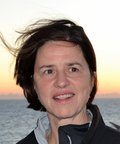
Katherine Richardson is a professor in biological oceanography at the University of Copenhagen and leader of the Sustainability Science Centre (www.sustainability.ku.dk). She was Chairman of the Danish Commission on Climate Change Policy which reported in 2010 and presented a roadmap for how Denmark can become independent of fossil fuels by 2050. At present she is member of the Danish Climate Council. She is a principle investigator in the Center for Macroecology, Evolution and Climate (www.macroecology.ku.dk) where her research focuses on the importance of biological processes in the ocean for the uptake of CO2 from the atmosphere and how ocean biology, including diversity, contributes to ocean function in the Earth System. She is active both as a member in and/or chairperson for a number of national and international research committee/ advisory boards. She has published over 100 scientific papers and book chapters.
The presentation title is: Which types of data do we need to manage the environment at the global level
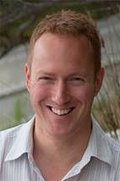
Arko Lucieer is a Senior Lecturer in Remote Sensing and GIS in the Geography and Spatial Sciences Discipline, School of Land and Food at the University of Tasmania. He received his MSc in Physical Geography with a specialisation in hyperspectral remote sensing from Utrecht University in the Netherlands in 2000. His PhD research focused on image segmentation and visualisation of uncertainty in satellite imagery. He obtained his PhD degree in 2004 from the International Institute for Geo-Information Science and Earth Observation (ITC) and Utrecht University in The Netherlands. Since 2004, Dr Lucieer has been a Lecturer and Senior Lecturer (after 2010) at the University of Tasmania. His area of expertise is in environmental remote sensing focusing on the analysis of satellite and airborne imagery, in particular image texture measures, image classification, object-based image analysis, change detection, and terrain analysis techniques. His current research focus is on the development and application of Unmanned Aircraft Systems (UAS) for environmental remote sensing and aerial surveying applications. Dr Lucieer is the founder and team leader of the TerraLuma research group at the University of Tasmania. His group has integrated advanced sensors on UAS and developed novel image processing workflows for a wide range of real-world applications, e.g. agriculture, landslides, vegetation mapping, erosion, Antarctic moss beds. More information about Dr Lucieer can be found on his website: http://www.lucieer.net and on the TerraLuma research group website: http://www.terraluma.net
The presentation title is: Rise of the Drones – opportunities of Unmanned Aircraft Systems (UAS) for environmental remote sensing
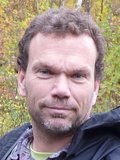
Nigel Gilles Yoccoz is a professor of statistical ecology at the Arctic University of Norway since 2003. His interests are broad, from studies of population dynamics and evolution of life history traits to monitoring of biodiversity changes and impacts of global change on arctic ecosystems. He is currently focusing on how to develop better models and designs to implement adaptive monitoring programs. This is part of a large collaborative circumpolar effort to assess causes of changes in state and dynamics of arctic ecosystems.
He has published app. 230 papers in peer-reviewed journals, with 7,400 citations in Google Scholar since 2010.
The presentation title is: Adaptive monitoring of Arctic ecosystems: Why, What and How?
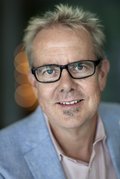
Daniel Conley is a Professor in Biogeochemistry at the Department of Geology at Lund University, Sweden. Conley obtained a Ph.D. in Chemical Oceanography at The University of Michigan in 1987. After working on the Chesapeake Bay at the University of Maryland Center for Environmental Studies, Conley moved to Denmark in 1995 and worked at the National Environmental Research Institute in Roskilde. He held a European Union Marie Curie Chair at Lund University from 2007-2009, where he is currently a Professor. His research focuses on perturbation of nutrient cycles by human activities and the responses of marine ecosystems to changes in human impact and climate. Conley’s personal and professional goals are to provide managers with a sound scientific basis for developing policies, measures and practices to protect the marine environment. He is currently engaged in providing advice on large-scale engineering projects intended to remediate the harmful effects of bottom water hypoxia and the spread of dead zones in the Baltic Sea.
The title of the presentation is: Getting rid of hypoxia

Michael Rode is an engineer in agricultural and environmental science with more than 20 years experience on hydrological and water quality modelling. He received his PhD from the University of Giessen, Germany, in 1995. He has worked with UFZ at various scientific and managerial levels since 1996 and recently he is the deputy head of the Department of Aquatic Ecosystem Analysis and Management. His research expertise covers three main fields: the hydrological and diffuse source pollution modelling, water quality modelling (receiving water quality models) and integrated hydrological modelling including development of water quality monitoring schemes. Michael Rode has long term teaching experiences at the University of Potsdam (Germany, adjunct Professor). He has been co-ordinator of several international research projects and participated in several EU River basin management projects. Additionally he has long term experience in co-ordinating workshops and sessions especially on water quality. He is an author or co-author of about 50 internationally refereed scientific papers and he has edited four books.
The title of his presentation is: Improving monitoring strategies and process understanding using novel continues water quality sensor technologies
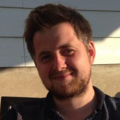
Grant Miller is a postdoctoral researcher at the University of Oxford, where he works as the communications lead for the Zooniverse group. The Zooniverse is the largest platform for citizen science, and is home to many environmental projects such as Old Weather, Orchid Observers, and Penguin Watch.
Title: Zooniverse - Citizen Science for the Environment
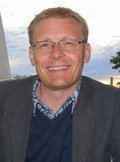
Mark Desholm has been working with birds and wildlife biology for more than 15 years. As a research scientist at Aarhus University he worked with migrating birds, and has a long experience in data collection by many different methods, including radar and thermal imaging. Since 2014, he has been head of the Conservation and Science Department of Birdlife Denmark. The mission of Birdlife Denmark is to promote knowledge of birds, to support nature conservation and to protect birds and their habitats. One of the key activities is to compile data on all bird species breeding in or migrating through Denmark. Birdlife Denmark is one of the Danish NGO’s with the longest history of working with researchers to collect bird data. In 2014, more than 1.000 voluntary bird watchers participated in a nation-wide mapping of breeding birds in Denmark.
Title: The role of citizens in monitoring – an NGO perspective